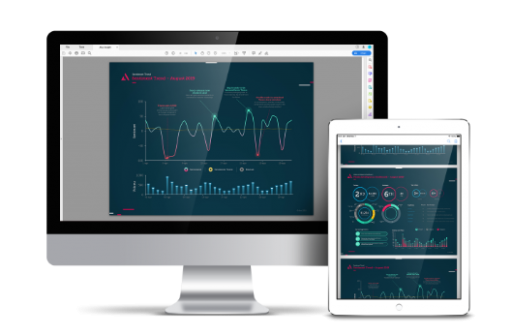Using Board Intelligence to navigate the reputational impact of the ‘windfall tax’
The Energy Profits Levy has sent shockwaves through the energy industry, hitting stakeholders with a raft of uncertainty. The business impacts of the tax on energy companies could be significant, and leadership looking to mitigate the reputational implications of the windfall tax for profits, share performance and consumer confidence will need a multi-faceted lens to understand stakeholder perspectives
Under pressure to help UK citizens survive a cost-of-living crisis that includes rising energy prices, the Government introduced a ‘windfall tax’ on the profits of oil and gas companies in May. The Energy Profits Levy adds 25% to the 40% corporation tax paid by North Sea extraction companies, and is projected to raise £5bn in the first 12 months as part of a £15bn support package for struggling households.
Stakeholder perceptions of the windfall tax
The growing influence of stakeholder capitalism within the energy industry is reflected in the significant reactions the policy has sparked among the sector’s most prominent stakeholders. By examining how a company’s response to the new levy and its impacts are received, it is possible to predict the reputational fallout of the windfall tax on its business.
The former chancellor’s “temporary, targeted energy profits levy” is designed to appease consumers, who have seen energy bills rise alongside reports of increases in profits on oil and gas. It also appeals to those who believe energy companies should pay more tax as part of their social contract. Between 2015 and 2020, oil giants Shell and BP overwhelmingly received more money from the government than they paid in tax, by putting decommissioning and extraction costs against profits. The windfall tax does not allow for the accounting of losses in this way, and the levy will have to be paid.
But the move is less popular with investors. Uncertainties around whether and when the windfall tax will be extended to electricity companies, and how it could be structured, have destabilised energy sector share prices. Shareholders are unlikely to welcome the drain on dividends, while potential investors worry that planned developments in the sector may stall.
Stakeholder concerns have direct impacts on energy companies’ reputations, and on their ability to pursue business as usual. Surfacing these impacts and understanding how to mitigate the associated reputational risk of the windfall tax is key for the sector’s leadership teams.
The business impact of reputation and the windfall tax
Deeper examination shows a nuanced stakeholder response to the energy levy. Among investors, it has garnered a mixed reaction. In the oil and gas sector, some fear it will reduce income already hit by exiting from investments in Russian oil firms. However, an investment allowance in the legislation will ease that blow. The clause offers energy firms 91p of tax savings for every £1 spent on investment and should encourage investment in new extraction activities. Overall, oil and gas shareholders are relatively sanguine, with stocks in BP and Shell reaching 52-week highs after the windfall tax announcement as oil and gas price return remained high following Russia’s invasion of Ukraine.
Electricity shareholders are less calm. The procrastination around extending the levy to include electricity companies has seen investor sentiment worsen. Reports of a windfall tax on their profits saw electricity stocks fall, with SSE dropping 7.9%, Centrica taking a 7.2% hit and power station operator Drax Group losing 13.8% of its share price.
Among consumers, the windfall tax could also damage energy companies’ reputations by highlighting the contrast between their success and their customers’ woes. Against the backdrop of a rise in the energy price cap, a nationwide cost-of-living crisis and inflation rates hitting a 40-year high, the worst affected are having to make the choice between heating and eating. Meanwhile, Centrica reported a doubling of its annual operating profits in 2021 to £948m, as SSE’s underlying operating profits increased 15% year-over-year to £1.5bn for the year to the end of March 2022.
For campaigners backing the transition to greener energy, the levy is creating concern over the ability and willingness of energy companies to invest in renewables. Analysts believe new oilfield projects worth £8bn could be green lit as part of the tax’s investment clause, increasing the UK’s reliance on fossil fuels. Consequently, NGOs including Friends of the Earth fear incentives afforded by the windfall tax will be a backward step in efforts to avert the climate crisis.
Navigating the reputational results of the windfall tax
Stakeholder perception directly influences the energy sector’s ability to do business, and the impact of windfall tax on its reputation is significant. With consumer antagonism rife, NGOs outraged, investor confidence damaged, and the government showing an unprecedented willingness to tax energy companies’ profits, business risks are myriad. These include failure to attract investment, loss of customers, falling profits, protests by campaign groups, and additional, restrictive regulation.
alva’s research into the impact of gas price rises illustrates how when an energy crisis strikes, few of those involved emerge with their reputations unaffected. Suppliers, regulators, government and the industry as a whole all attract negative sentiment. Blame circulates as regulators criticise energy providers for lack of resilience, and the providers hit back over failure of foresight by government. Treatment of consumers is often the defining factor in the level of negative coverage a company attracts.
An energy board looking to mitigate the business impacts of the windfall tax therefore needs a means of evaluating stakeholder perception and identifying emerging trends before they become business critical. A stakeholder intelligence solution that uses quantitative metrics to track sentiment across a wide range of sources, geographies and stakeholders, while tagging specific issues, can provide real-time analysis of where reputation risks and opportunities lie.
For the energy sector, getting ahead of the story regarding the windfall tax could help to shore up investor confidence and protect share price. By publicising how they will protect profits and support consumers in the event of a levy, electricity providers can counter any negative sentiment that stakeholder analysis shows is building, and allay the fears of their primary stakeholders.
Be part of the
Stakeholder Intelligence community









